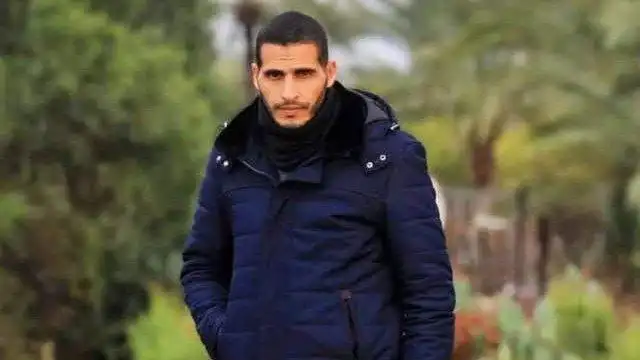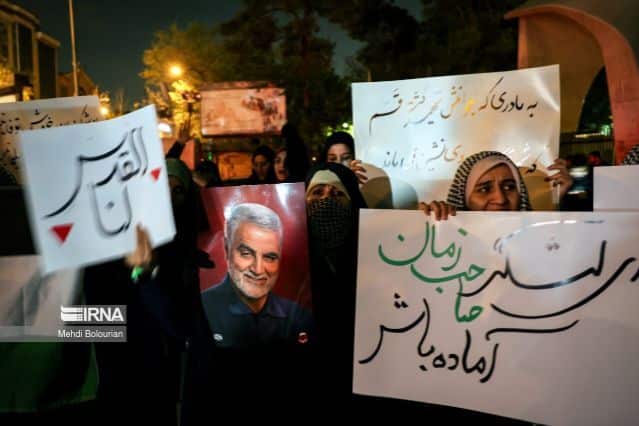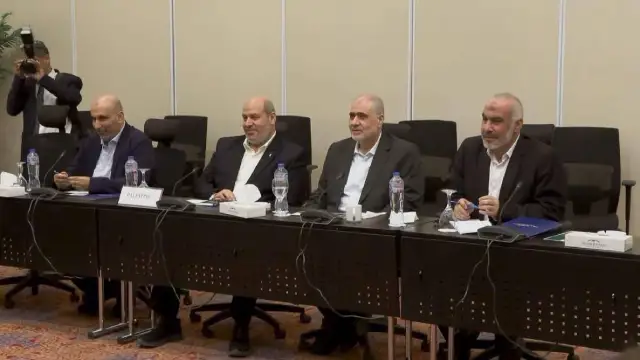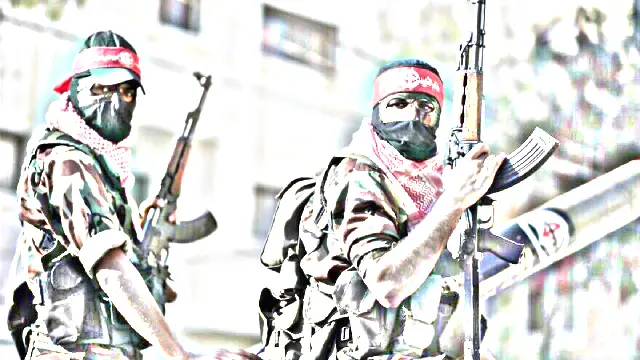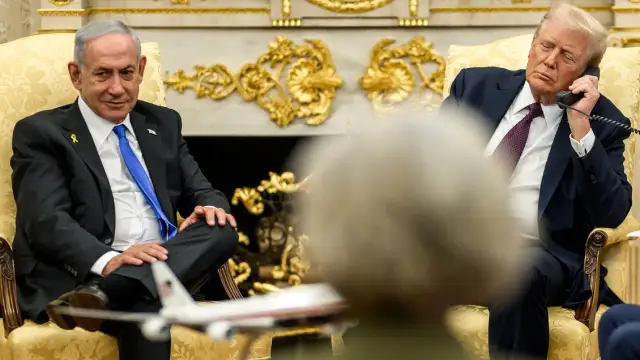Palestinian journalist Hassan Aslih’s assassination marks a grim milestone. US-sponsored Israeli forces bombed the Nasser hospital in Khan Younis, in Gaza, on Tuesday, May 13th, killing the severely wounded reporter as he received treatment for burns that he had suffered in an earlier attack.
Mr Aslih became the 215th journalist killed by Israel in Gaza since October 7th 2023.
Israel killed him within days of the third anniversary of renowned Palestinian journalist Shireen Abu Akleh’s assassination, who was killed in the West Bank on May 11th 2022.
Palestinian journalist Mr Aslih’s assassination highlights the perilous conditions faced by those documenting the conflict and exposing Israel’s war crimes.
Palestinian journalist Hassan Aslih’s assassination: Another voice silenced
Mr Aslih had survived a previous Israeli attack in April, in which three of his colleagues were burned to death on camera.
That Israeli assault targeted a press camp, suggesting a deliberate attempt to silence him and all Palestinian journalists covering the aggression on Gaza.
Before his death, Palestinian journalist Mr Aslih spoke defiantly about his mission.
“They tried to silence the truth and falsely accuse me… but all I carried was the truth — nothing else,” he said following the earlier attempt on his life.
“I was nothing but a journalist in the field… my words were my weapon, and truth was my cause,” Mr Aslih added.
These would prove to be his final acts of bearing witness.
Palestinian journalist Mr Aslih’s assassination occurred during the renewed Israeli bombing campaign that began on May 13th, soon after the resistance released American-Israeli soldier Edan Alexander following a deal with the US.
Israeli forces struck the medical facility where he was receiving treatment, raising serious questions about respect for protected sites under international law, which Israel has been breaching with sheer impunity for years now.
Widespread condemnation of Palestinian journalist Hassan Aslih’s assassination
Palestinian resistance organisations, from the left-wing to the Islamists, responded swiftly to the assassination.
The left-wing Popular Front for the Liberation of Palestine (PFLP) issued a particularly forceful statement.
“The Popular Front for the Liberation of Palestine mourns the martyr of Palestine and the truth, the great journalist and media figure, Hassan Aslih, who was assassinated by Zionist occupation aircraft at dawn today inside the Nasser Medical Complex in Khan Yunis, while he was receiving treatment for his injuries. This cowardly war crime reaffirms that this enemy does not hesitate to target free speech, just as it targets stones and people.
“Palestine has lost one of its loyal sons, and the Palestinian press has lost one of its national pillars, who has emerged in recent years as one of the most famous and important media voices defending Palestinian rights. He was at the forefront of those covering the ongoing aggression on the Gaza Strip from day one, conveying the truth to the world with his camera, lens, and words, until he became a Palestinian media icon, a witness to the crimes of the occupation, and a reliable source of information and images.
“The assassination of journalist Hassan Aslih inside a hospital, while he was wounded, reveals the true face of this enemy, which respects neither international law nor a humanitarian charter.
This assassination adds to its record of ongoing crimes against Palestinian journalists, who have paid with their lives for conveying the truth and exposing Zionist criminality.
“The Front holds the International Federation of Journalists and the international community responsible for their continued silence regarding the massacres committed by the Zionist occupation against journalists and media professionals in Gaza, and calls on them to assume their legal and moral responsibilities in holding this entity accountable for its systematic crimes against press freedom and media work.”
Hamas similarly condemned the killing. The group mourned “the martyr of Palestine and of truth Hassan Aslih, assassinated while receiving treatment.”
They noted that the death of the 215th Palestinian journalist “exposes the occupation’s moral and media bankruptcy.”
Hamas declared that “targeting journalists will neither extinguish the voice of truth nor intimidate the knights of word and image,” while calling for “deterrent sanctions on this criminal entity and its murderous leaders.”
Pattern of targeting media workers
The Ahrar Movement characterised Mr Aslih as “a fearless exposer of occupation crimes and local corruption,” branding the strike “a heinous crime that disgraces the zionist entity and a complicit world.” They denounced “the use of a wide-impact, destructive weapon inside a hospital” and demanded “immediate global condemnation, an end to the genocide, and accountability for ‘israel’s’ Nazi-like leadership.”
The Mujahideen Movement described Palestinian journalist Mr Aslih’s assassination as “a compounded war crime revealing the enemy’s fascist savagery and intent to continue genocide.” They condemned “the global and international silence that emboldens ‘israel’ to target protected health, relief, and media sectors,” and affirmed that “the voice of truth will keep pursuing the zionist oppressors, insisting the occupation will never break Palestinian steadfastness.”
This grim toll of 215 journalists killed in Gaza since October 7th deserves greater international attention. Reporters Without Borders has repeatedly warned about the unprecedented dangers facing media workers in the enclave. Palestinian journalist Mr Aslih’s assassination seems part of a systematic effort to control the narrative coming from Gaza.
Questions of accountability
Israeli forces continue their campaign with American backing, despite growing international criticism.
The bombing of a hospital—a protected structure under the Geneva Conventions—to kill Palestinian journalists represents a particularly troubling escalation.
Mr Aslih’s assassination occurred while he was receiving medical treatment, a circumstance that would normally confer additional protection under international humanitarian law.
Western governments have remained largely silent about Palestinian journalist Mr Aslih’s assassination. They similarly remained mute when his colleagues were burned to death.
Moreover, they remained quiet when over 50,000 civilians were killed by Israel in the Gaza Strip.
This approach contrasts sharply with their vocal responses to press freedom issues in other conflicts.
It exposes their hypocrisy when they condemn other states for their reported “persecution” of journalists.
The lack of accountability for these killings effectively grants Israel impunity for actions that would trigger sanctions elsewhere.
As Palestinian groups have pointedly noted, the targeting of journalists serves a clear strategic purpose.
Without independent witnesses, Israel can more easily control information about its military operations.
Palestinian journalist Aslih’s assassination removes yet another voice documenting conditions on the ground.
His death impoverishes the world’s understanding of a conflict that has already claimed over 51,000 Palestinian lives.
Join our channels on Telegram and WhatsApp to receive geopolitical updates, videos and more.

